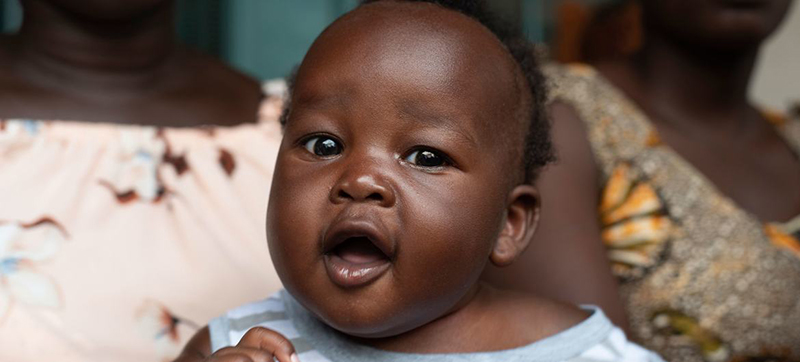 Hepatitis
Hepatitis
Children at risk of new ‘unexplained acute hepatitis’ outbreak – UN health agency
New York: The world is currently facing a new outbreak of “unexplained acute hepatitis infections” affecting children, the World Health Organization (WHO) warned on Thursday, World Hepatitis Day.
The current uptick focuses attention on the thousands of acute viral hepatitis infections that occur every year among children, adolescents, and adults.
Treat hepatitis
WHO, together with scientists and policymakers in affected countries, are working to understand the cause of this infection that does not appear to belong to any of the known five types of hepatitis viruses: A, B, C, D, and E.
While the world has the guidance and tools to diagnose, treat, and prevent chronic viral hepatitis, these services are often out of reach for communities and are sometimes only available at centralized or specialized hospitals.
“To be most effective, hepatitis care must be delivered in communities through strong primary healthcare and integrated with other health services that address the full range of health needs,” WHO chief Tedros Adhanom Gebreyesus said in his message for World Hepatitis Day.
At risk
Although most acute infections cause mild disease and even go undetected, some can lead to complications and turn fatal.
In 2019 alone, complications of acute hepatitis A to E infections caused an estimated 78,000 deaths worldwide.
Global efforts prioritize the elimination of hepatitis B, C and D infections.
Unlike acute viral hepatitis, B, C and D cause chronic disease, which lasts for several decades, culminating in over one million deaths per year from cirrhosis and liver cancer. And they are responsible for over 95 per cent of hepatitis deaths.
Death every 30 seconds
“Every 30 seconds, someone dies from hepatitis-related diseases, including liver failure, cirrhosis and cancer,” said the WHO chief.
Moreover, some 80 per cent of people living with the disease are unable to access or afford care.
With the goal of eliminating hepatitis by 2030, the UN health agency has called on countries to reach four specific targets.
It aims to reduce new infections of hepatitis B and C by 90 per cent; reduce hepatitis-related deaths from liver cirrhosis and cancer by 65 per cent; ensure that at least 90 per cent of people with hepatitis B and C virus are diagnosed; and at least 80 per cent of those eligible, receive appropriate treatment.
“Low coverage of testing and treatment is the most important gap to be addressed, in order to achieve the global elimination goals by 2030,” according to WHO.
Call to action
WHO is calling on all governments and partners to “scale up the use of effective tools” against the potentially deadly disease.
Tedros drew attention to a new WHO report that shows how Brazil, Egypt, Georgia, Mongolia, Rwanda, Thailand and the United Kingdom, are making progress towards the elimination of hepatitis B and C by applying the UN health agency’s tools and guidelines.
“With political commitment and investment, the elimination of viral hepatitis is within our reach,” he stated.
July spotlight
The day aims to raise awareness of viral hepatitis, which causes inflammation of the liver that leads to severe disease and liver cancer.
It also offers an opportunity to step up national and international efforts on the infection, encourage individuals, partners and the public to act, and highlights the need for a greater global response, as outlined in the WHO's Global hepatitis report of 2017.
This year, WHO is highlighting the importance of bringing hepatitis care closer to primary health facilities and communities for better access treatment, no matter the type of hepatitis.
The 28 July date was chosen because it is the birthday of Nobel-prize winning scientist Baruch Blumberg, who discovered hepatitis B virus (HBV) and developed a diagnostic test and vaccine for the virus.
Support Our Journalism
We cannot do without you.. your contribution supports unbiased journalism
IBNS is not driven by any ism- not wokeism, not racism, not skewed secularism, not hyper right-wing or left liberal ideals, nor by any hardline religious beliefs or hyper nationalism. We want to serve you good old objective news, as they are. We do not judge or preach. We let people decide for themselves. We only try to present factual and well-sourced news.







